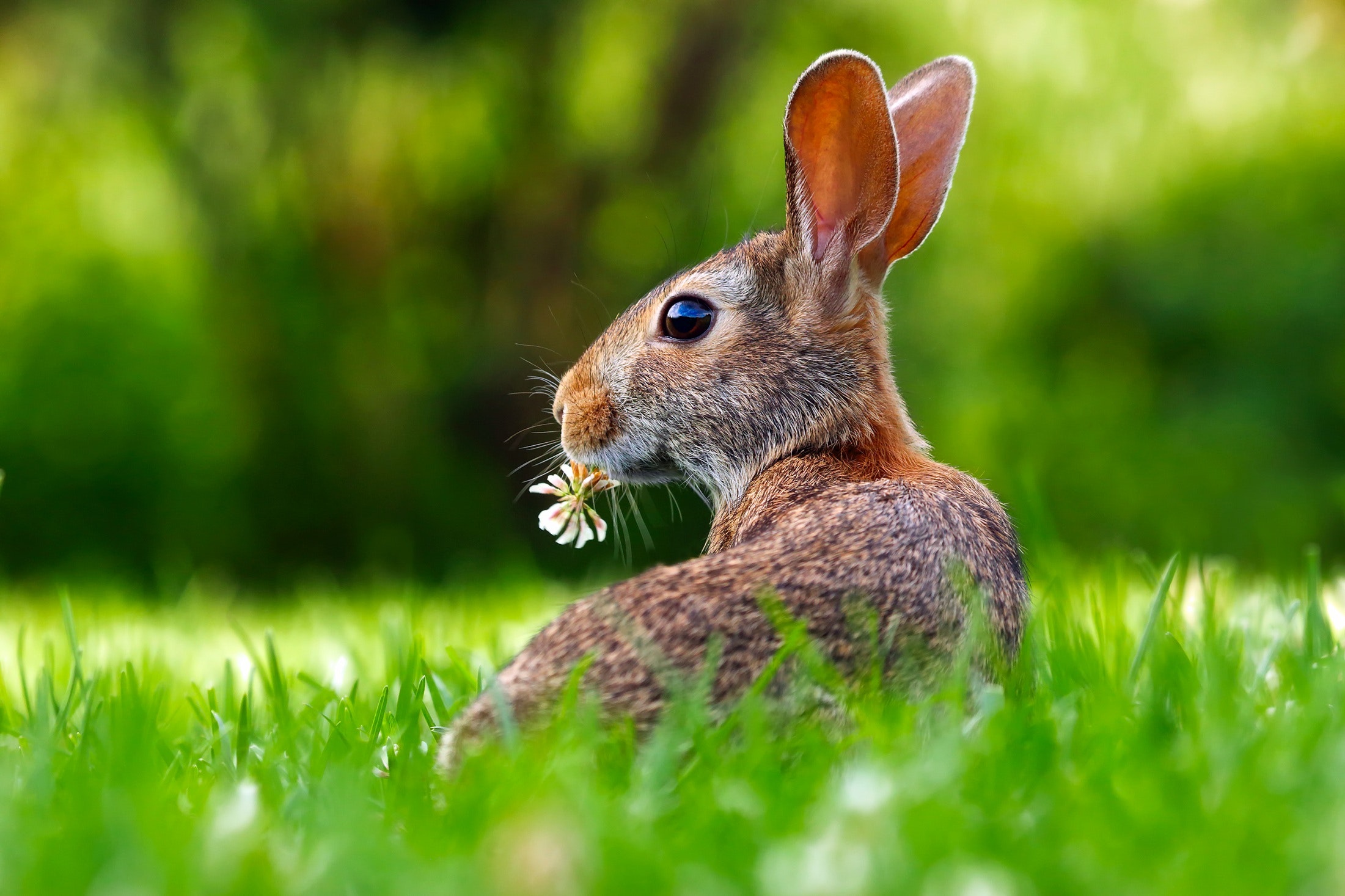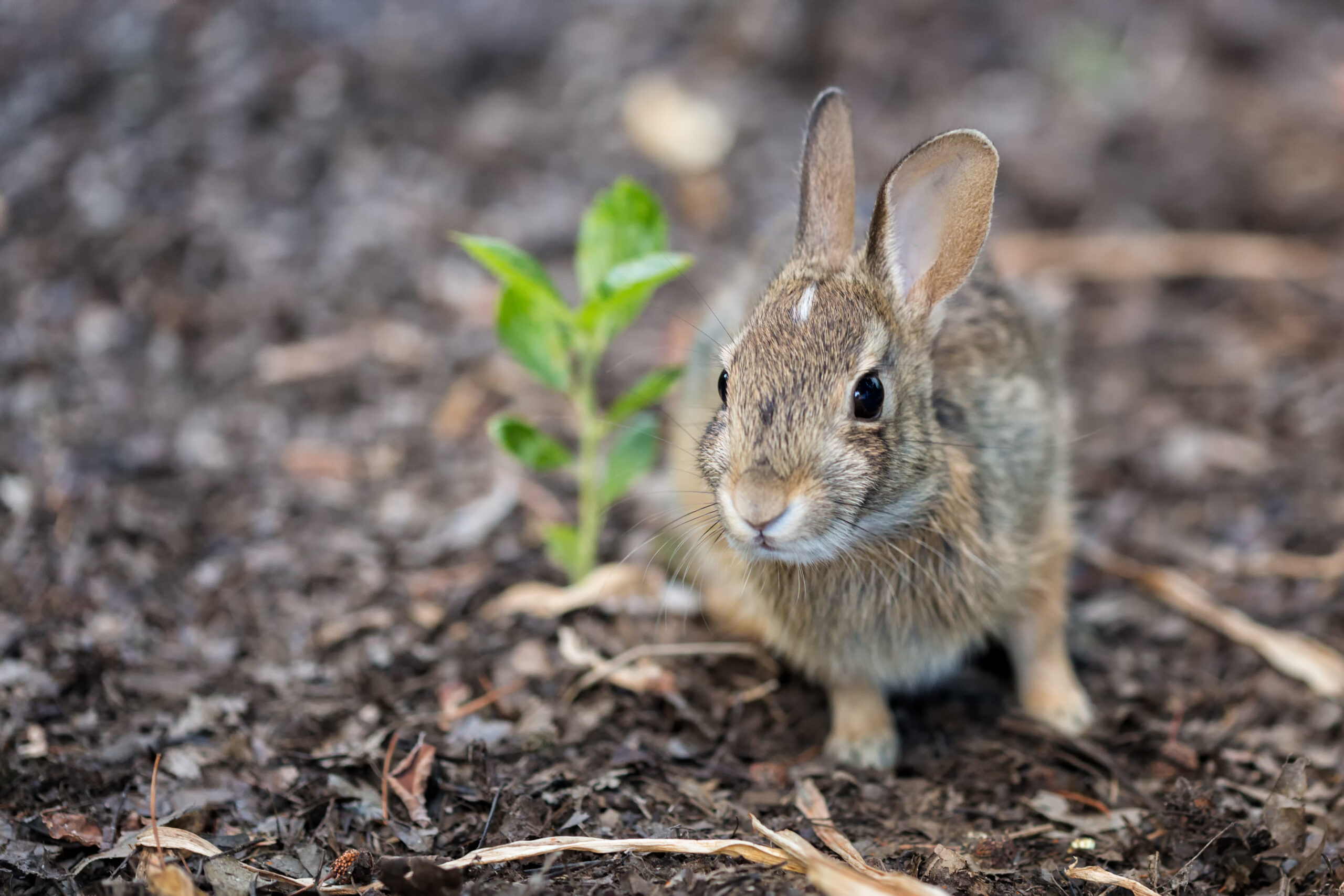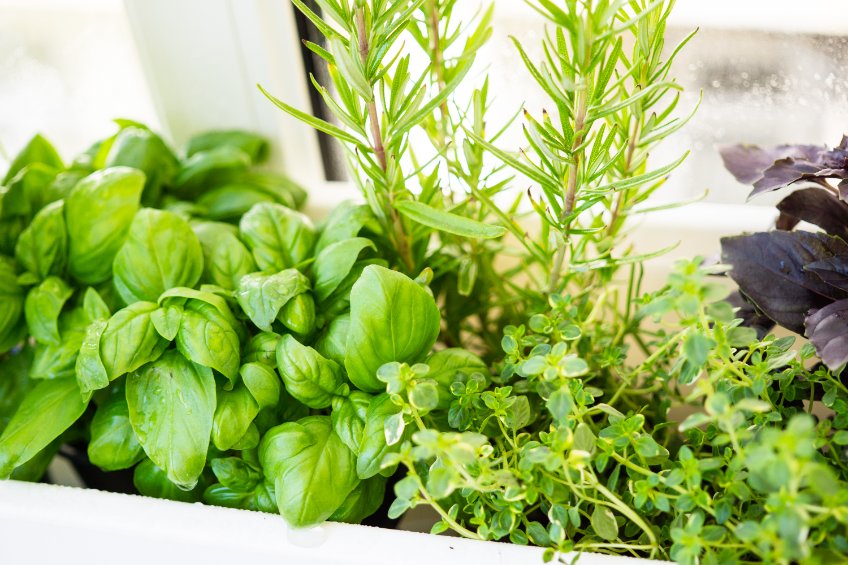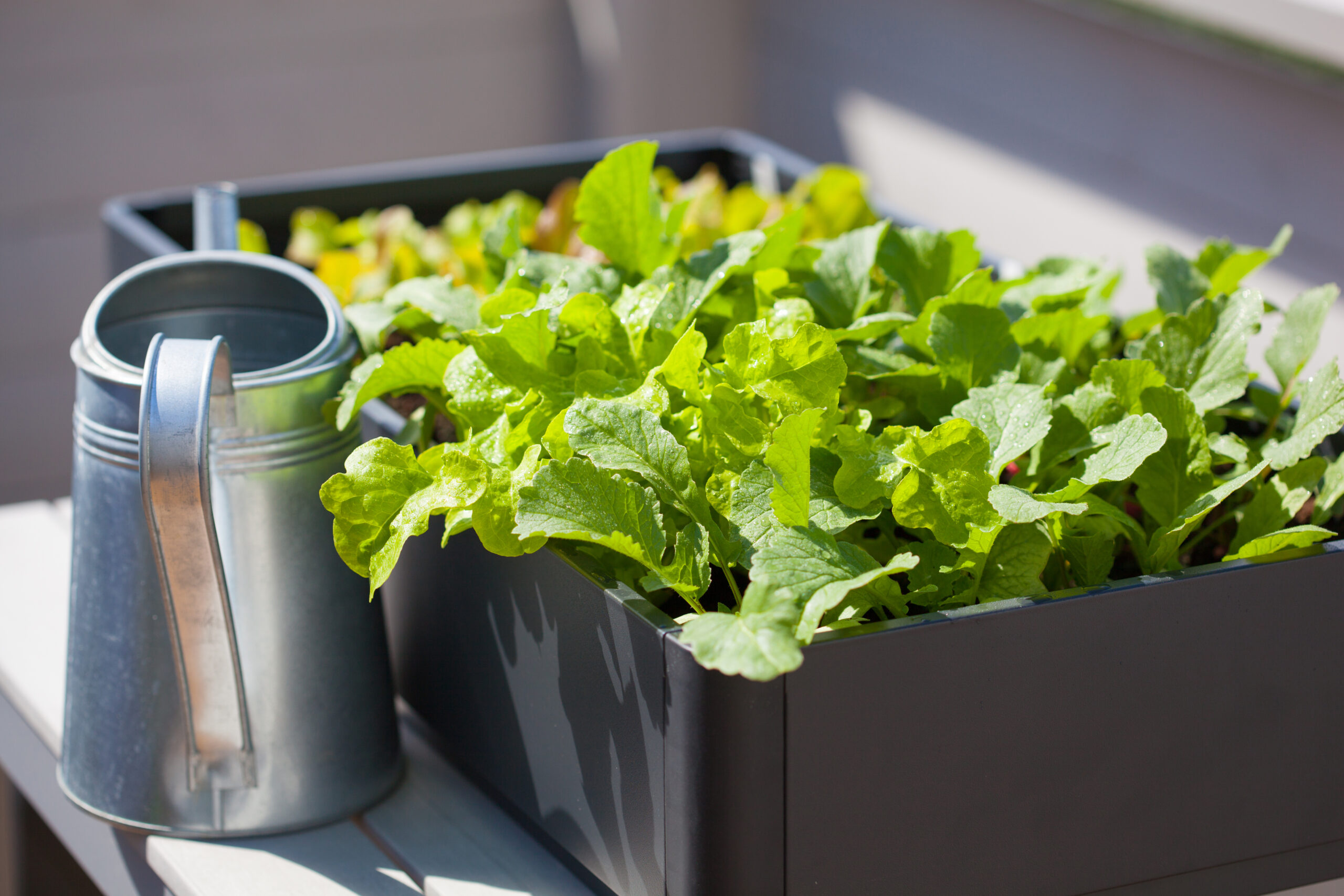How to Keep Rabbits Out of Your Vegetable Garden
Rabbits may be cute, but every gardener knows the havoc they wreak on unprotected garden beds.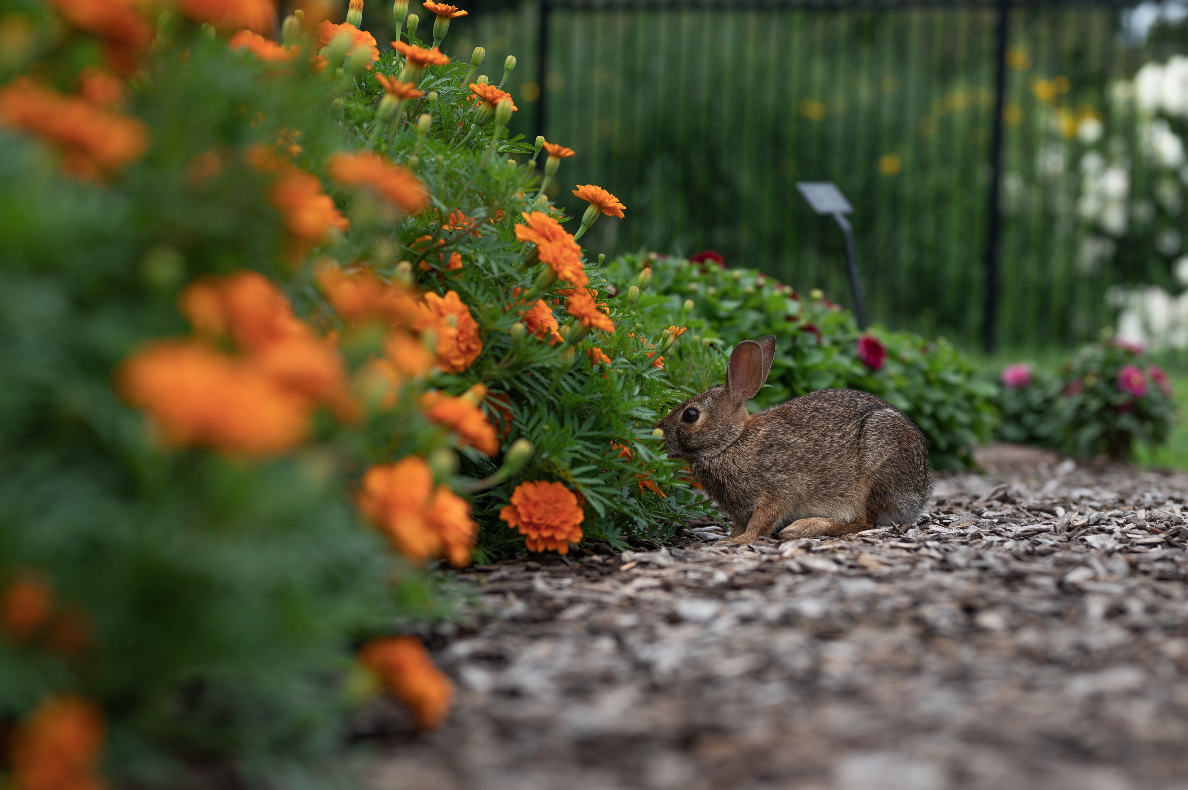
Rabbits are a sight which many gardeners view with equal parts fondness and irritation. While they may be cute, it’s hard to retain warm fuzzy feelings for any critter that’s munching away at your carefully planted rows of vegetables. Because of their seeming ubiquity and the difficulties of keeping them away, rabbits are frequently cited as one of the number one garden pests for many growers.
However, while rabbits may be persistent, there are steps you can take to protect your garden without causing harm. Here are our six top tips. Let us know in the comments if you’ve tried any and which have worked best for you!
1. Chicken wire fencing.
The best way to protect your garden is by preventing rabbits from getting in to begin with. If rabbits never learn that your garden is a lush source of tender greens ready for munching, they’ll be more likely to leave you alone—and the same goes for other garden loving critters, such as groundhogs.
That said, keeping rabbits out is no easy task, especially when they’re young and can fit through tight spaces. To start, you’ll need wire fencing that will stand at least two feet above ground, and with holes no larger than one inch across. Rabbits are burrowers, so you’ll need to dig a trench around your garden that is at least six inches deep to bury the bottom of the chicken wire.
You can use fencing around your whole garden, or reserve it for plants that rabbits are more likely to nibble on. Just be sure to check it regularly for holes.
2. Raised beds.
Want to avoid unsightly garden beds? A raised bed is often enough to keep plants out of the reach of hungry rabbits, as well as other garden pests that aren’t such good jumpers. Even a couple feet of elevation can be enough to deter most rabbits while also cutting down on the amount of weeding you have to do. They’re also better for your back and are more comfortable to harvest vegetables from.
3. Habitat removal.
Rabbits are natural prey for many animals, both on the ground and in the air. Because of this, they tend to avoid open spaces without much cover, and prefer not to travel too far from the safety of their burrows. The more time a rabbit spends out in the open, the more likely it is to fall victim to a fox or hawk.
This means that you can protect your vegetable garden bed by making it more dangerous for rabbits to rely on it for a food source. Clear away leaves and underbrush that would give rabbits places to hide, and fill in any holes along your property edge which they might use as an escape. If you have space, position your vegetable garden farther away from the edge of a wooded area, and keep the surrounding grass mowed.
4. Individual plant protection.
Rabbits are mostly interested in tender young shoots, and are more likely to avoid plants as they get older and woodier. If you’re mostly worried about just a few plants and don’t want to put up an entire fence, you can save yourself a lot of work by just protecting your most vulnerable crops.
In the spring, encircle seedlings with plant cages or cylinders of mesh hardware cloth. In the winter, rabbits have been known to strip the bark off saplings. Protect your trees by using tin cans or fine mesh around the areas where rabbits can most easily reach. Be prepared to raise your protection depending on the snowfall in your area.
5. Garden repellents.
Rabbits have sensitive noses and a delicate sense of taste. Accordingly, they can often be deterred by certain strong odors or tastes. In particular, garlic, onions, certain kinds of soap, and hot peppers can all be used to drive rabbits away. There are even some rabbit repellents on the market derived from dried blood, although you may not want to use these if you have dogs.
Spray repellents will wash away over time, so you’ll need to apply them regularly. The good news is that they’re cheap, and many can be made from household ingredients. Many of the most popular recipes include some combination of Irish Spring soap or Lysol, garlic powder, and cayenne pepper. The benefit of homemade repellents is that you can be sure they will rinse off and pose no risk to your edible crops.
Physical repellents, such as metal pinwheels or motion-activated sprinklers, can also be effective in scaring rabbits away, but may not be foolproof as the rabbits become more used to them.
6. Rabbit-resistant plants.
Even rabbits can be picky eaters. Some plants are known to be useful in warding rabbits away with their strong scents. These include onions and garlic, lavender, marigolds, geraniums, wax begonias, juniper, and lilac. By interspersing these plants among your garden or around its edge, you can make your garden less attractive to wandering bunnies.
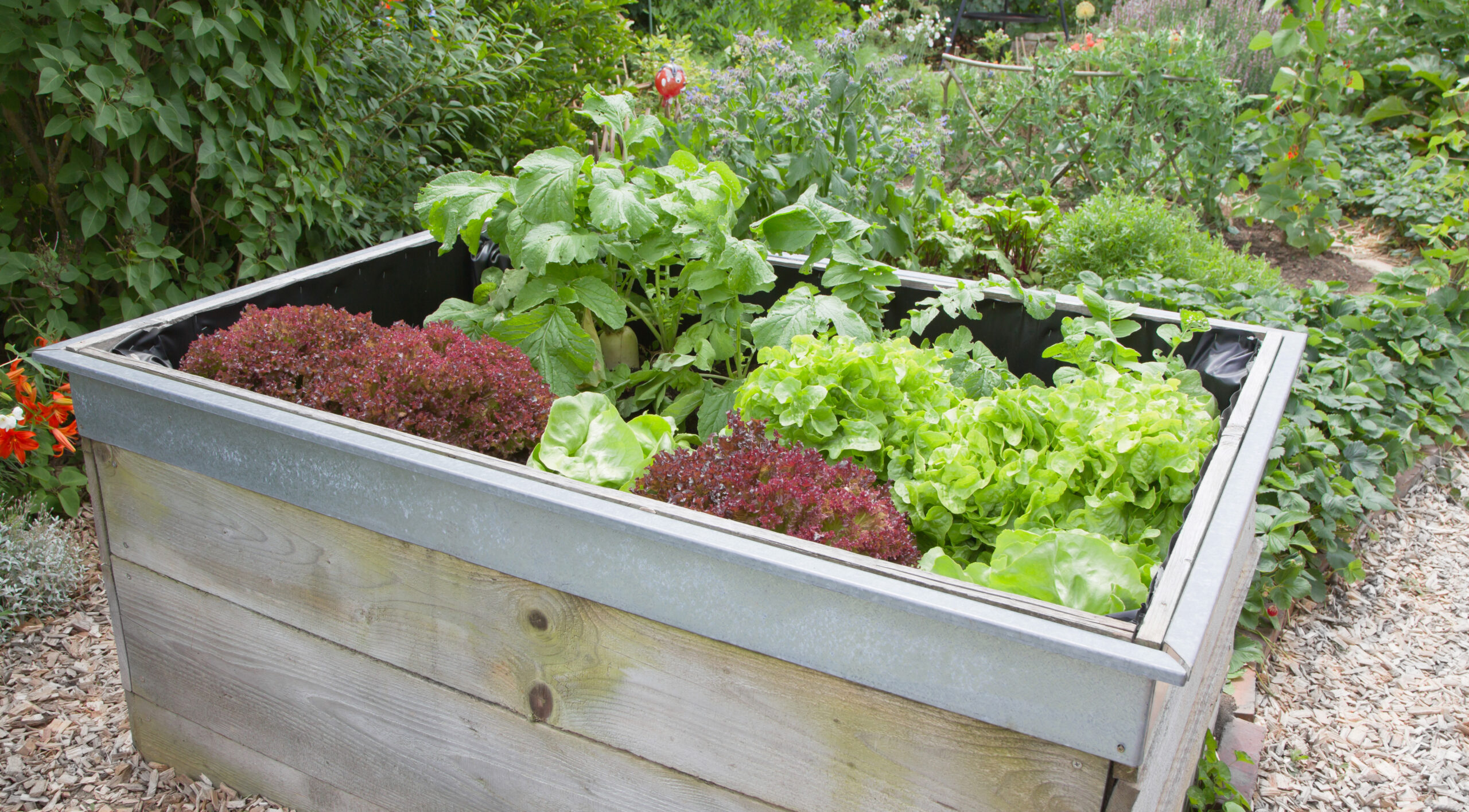
A final word on pets, predators, and rabbit traps.
Before we wrap up, let’s address one final rabbit deterrent: other animals. As we said earlier, rabbits are naturally timid creatures who will run away at the first sign of danger. This means that if you live somewhere where it’s possible to let your dog roam outdoors, it will probably frighten away most rabbits, both by its physical presence and by marking its territory.
It’s also the case that if you live somewhere with natural predators (foxes, coyotes, maybe even wolves), their presence around your property may be enough to scare rabbits away. Cats can also do the trick; however, if you let your house cats loose in your yard, they’re likely to decimate your local bird population before they make any serious dent on the rabbits. In fact, it’s estimated that house cats kill roughly a billion birds a year—not welcome news for any gardeners who are also hoping to attract avian wildlife.
Last but not least, while there are rabbit traps available, not every state allows them—especially not the humane ones designed to catch and release live critters. Overall, it’s best to exhaust the above options, especially as many of them are proven to be effective.
So, what methods have you tried to remove rabbits from your garden? Let us know in the comments. We’d love to hear if any of our suggestions have worked for you, or if you have additional advice that we didn’t cover in our list!
